| Author | Message | ||
Jeff Martin New User Username: jeff_r_1 Post Number: 37 Registered: 07-2018 |
The service handbook for the R Type and Mark VI says 30 and 20 weight, see attachment. Yet many are running 20/50, 5/40 and 5/50, etc. some synthetic and some not. With the maximum viscosity that RR recommends of 30 weight, why go beyond that, especially in a freshly rebuilt engine ? Using a thick oil beyond 30 weight would restrict the flow on the low pressure circuit to the rocker shaft where only 5 psi is involved (according to the manual). Wouldn't a 5/30 weight oil be best, synthetic or otherwise ? Or even 10/30 if one doesn't live in a cold climate ? I guess this would assume that the oil pump is with in specs ? 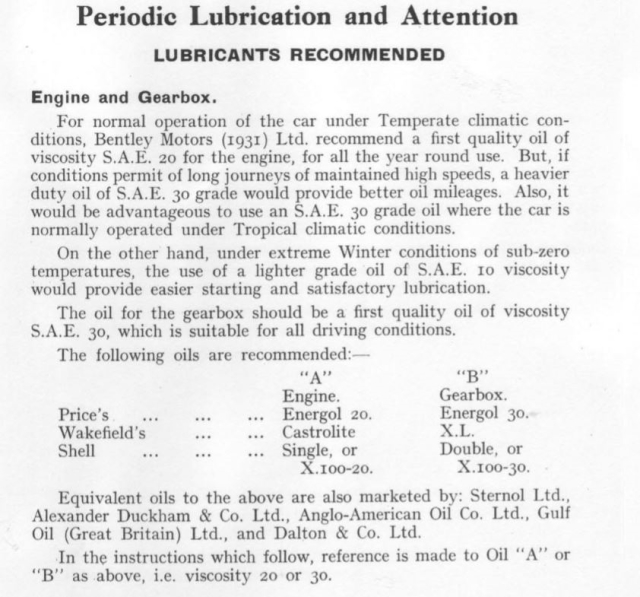 | ||
Patrick Ryan Grand Master Username: patrick_r Post Number: 2251 Registered: 04-2016 |
Hi Jeff, You pretty much have answered your own question, you are right on track. The main thing you need to cover is the cold starting of your engine, the 30 weight oil recommended is 30 weight when cold. With newer oils, the first figure 5W, 10W etc the W means winter, or when cold. This is by far to thin for engines designed to use 30 weight, as they are almost like water. But most modern engines are designed for this. Even old tech oil pumps canít pump these exceptionally thin oils properly. Synthetic oils are designed for engines that have exceptionally tight tolerances, high rpm thresholds, turbo chargers and exotic coatings and materials that the rings and bearings are made from and should not be used in engines that do not have these type of tolerances or materials. The exceptionally thin modern oils are also part of the OEM economy plan, as is low resistance tyres, slippery body designs etc. The second figure on modern oils is the viscosity it will achieve when the oil gets hot. Pretty much the only 30 weight oil you can buy these days are for mowers and stationary engines, mainly air cooled, that have a relatively short duty cycle or does not run for hundreds of kilometres or many hours at a time. I rebuilt an engine designed for 30 weight and was very happy to run a mineral oil 15W/40. But when I drive my car, it drives for hours at a time, so gets the full benefit of the viscosity spread the oil is designed to do. So I was happy to have the slightly lower cold temp viscosity, and the slightly higher hot temp viscosity. But others who do not run their car for hours at a time and not get fully hot for hours at a time just for ease, use 20W 50 and have had no problems, but they usually only run the car short distances. Have you ever put a laser thermometer onto the crankcase of your engine when she is fully hot? This is quite important to make your decision. My car, the head and other areas where coolant runs sits at about 90 degrees C when fully hot after a good run, but the bottom of the crankcase can run up to 110 degrees C Just donít go with a synthetic oil, with a low W rating in your lovely newly rebuilt engine. Lastly, The running in of your new engine and how well it is done, will decide itís longevity, just make sure you take the time to do this right, and using the right oil is half of the battle. | ||
Jeff Martin New User Username: jeff_r_1 Post Number: 39 Registered: 07-2018 |
Two members here that are using 5-40 and 5-50 full synthetic. Ashley James (13 post down) and Richard Treacy (10 post down), respectively. Just got me thinking... http://au.rrforums.net/forum/messages/16999/1495.html?1103534056 Sorry, I mislead you, the engine was rebuilt 20 years ago and is still going strong, and is nicely broken in. It's been driven on long highway runs between 60 and 70 mph. with an 88 degree thermostat from a Bentley S2/S3 etc... I'm just replacing the valve seals now and there is zero varnish build up in it. I've always been using 20/50 mineral and wanted to go with synthetic to see if the oil would actually stay cleaner longer. So a 20/50 synthetic oil ? All 15/40 in synthetic are for diesels (that I have found), have too much detergent in them don't they, so one shouldn't be running them in a gasoline engine ? That's the other thing that I find very confusing, if an oil is rated at 5/50, how can it have a rating of 50 at 100 degrees Celsius and still be at a 5 when cold ? It would be quite thin on a hot summers day, yet still retains its 50 weight designation ? | ||
Patrick Ryan Grand Master Username: patrick_r Post Number: 2252 Registered: 04-2016 |
Hi Jeff. If the engine has been running this long on 20/50 I would not be changing oil, or even the brand of oil. Iíve seen to many things alter when someone has done this. If itís been strong and happy for 20 years, why change? Nulon make quite a few mineral oils of different viscosities. Iíve been using Nulon oil for years. Their 15W40 is a mineral oil. Some people love high detergent oil, because they are anti slugging etc. Each to there own, and their individual experiences, but these generally have been run from new, or a fresh rebuild. Just donít change oil, or brand of oil after such a good run mate. How often do you change your oil? I canít explain the chemical reactions that happen with multi grade oils mate, maybe our esteemed moderator David could advise us here  | ||
Patrick Ryan Grand Master Username: patrick_r Post Number: 2253 Registered: 04-2016 |
Here is the Nulon oil. 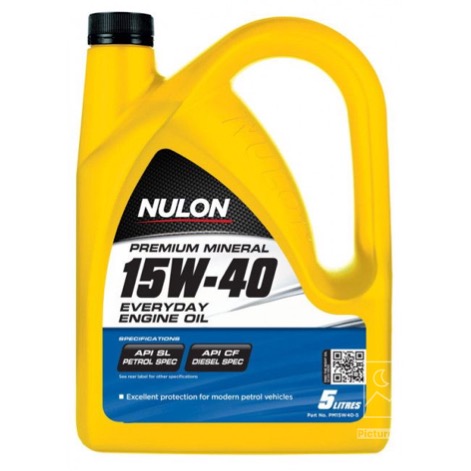 | ||
Jeff Martin New User Username: jeff_r_1 Post Number: 40 Registered: 07-2018 |
I change it when it starts to look a somewhat dark on the dip stick. I'll take a photo later. It's also been getting more difficult to find 20-50 Pennzoil and sometimes I can't, and there have been many times I was forced to use the in-house brand. My thinking was it will last longer with synthetic. At the time when I did the engine, there was no such thing as synthetic and now it's been out for a while I wanted to try it. In the end if the oil pressure is too low, then I can always switch back. I don't think it will outright damage the engine, that's for sure. My machine shop does mainly racing engines, so I'm not worried about sloppy bearing clearances. They have a certain standard to maintain, even on an engine with a red line of only 4200 rpm. | ||
Patrick Ryan Grand Master Username: patrick_r Post Number: 2254 Registered: 04-2016 |
Hi Jeff. The oil gets dark because it is suspending impurityís within. When it gets dirty, what is the rough time frame? Does your car run a filter? It will not matter what type of oil you are running, synthetic oil does not stop how the engine functions and the soot or impurities it produces, thus the oil will get the same dark colour exactly the same as the mineral oil, more than likely at the same time frame, thus negating that you want it to last longer, as you will change it when it darkens up anyway. You are spot on. Modern synthetic oils came about due to the needs of modern engines, fuels and OEM changing requirements. The oil stipulated for your car, would have been the latest oil and type available at that time. Out of interest Jeff, what oil change intervals does the book say? | ||
David Gore Moderator Username: david_gore Post Number: 3690 Registered: 04-2003 |
Patrick, The choice of engine oil is fairly straight forward: 1. Most multigrade mineral oils are now rated as compatible with petrol[gasoline] and light diesel [i.e. passenger car] engines. Just look for the oil specification codes on the container as shown by your Nulon oil above which is suitable for both engine types. Diesel oils have a higher additive content mainly to hold carbon particles from combustion of the diesel fuel in suspension rather than forming sludge to block the engine oil filter. I have subsequently used diesel specification mineral oils since there were no ongoing problems with their use in petrol engines and have travelled more than 1,000,000 kilometres since in the various petrol-engined cars I have owned with no problems attributable to the use of diesel engine rated mineral oil. 2. Synthetic oils usually have a longer permissible service life than mineral oils thus allowing greater distances between oil changes: https://drivinglife.net/synthetic-oil-vs-mineral-oil/ If changing from a mineral oil to a synthetic oil on an older engine, it is good practice to change the oil filter half-way during the first use of synthetic oil as this oil usually removes sludge deposits that accumulated in the engine whilst mineral oil [especially budget-priced oils] was being used. As far as DRH14434 was concerned, I only used Castrol GTX/GTX2 oil as the dual-rated and synthetic oils were just entering the market and, ever-cautious, I waited to see if there were any problems over the long term with these new engine oils. Our two diesel cars [VW Eos MY09 TDI and Mazda 2018 CX5] have used synthetic diesel oil from new with the oil being changed at the specified intervals [Combined distance travelled approximately 150,000km with 80+% at highway speeds].  . . | ||
Patrick Ryan Grand Master Username: patrick_r Post Number: 2255 Registered: 04-2016 |
Agree David, Modern engines, require modern oils  | ||
Bill Vatter Experienced User Username: bill_vatter Post Number: 98 Registered: 09-2004 |
Most oil currently available will provide adequate protection. Currently produced oil is vastly better than anything you could get when these cars were new. There is so much confusion, conflicting information, self-proclaimed experts, and misunderstanding that it is almost impossible to get relevant, factual information on which you might make a good, informed choice. Personal research is likely going to provide better information than asking for opinions on car forums. Most of us don't know any more than you. One parameter that is little understood but which has a very significant impact is oil film strength. You can learn about it here: https://540ratblog.wordpress.com/2013/06/20/motor-oil-wear-test-ranking/ | ||
Jeff Martin New User Username: jeff_r_1 Post Number: 41 Registered: 07-2018 |
Hey Patrick; the book says 5000 miles, it's actually right on the valve cover, and I change it when it starts to look like what is in the photo, so every two years. The car isn't driven much, but when it is, it's driven good and long. Some people would even say I abuse it, there's a hill climb on the highway where I live and I floor it pushing it to it's limit. It seems to like it, it runs and idles very well. The pistons are custom modern pistons with a very short skirt and are forged out of round with a modern alloy. They're actually made by a company that makes racing pistons. When they heat up, they become round, the rings are more modern then what RR ever had, I got rid of the chimney liners too. Here is what I have read about Synthetic oil: the molecules that make it up are all the same size, and this allows the rings to seal better, preventing blow-by, and thus the oil stays cleaner. Mineral oil is an average size of what makes up the oil. Most molecules are all the same, but bigger and smaller ones are in the mix. This causes combustion gases to escape between the smaller and bigger molecules of oil. The advantage of synthetic is because the molecules are all the same size, there is more of a consistent film on the bearings, this prevents premature failure of course. This is what I have read, so I'm going to start with that. At any rate, I'm going to find out if this is true. The most frustrating thing about this is, is that no one seems to know what is actually best, I can never get a straight answer out of anybody. Some people have been using it in the vintage cars and have no problems, while others are adamant that it will ruin their engine, because it's too thin, and doesn't have ZDDP. Still ZDDP, is out of date, synthetic is supposed to have better lubricating properties then any oil with ZDDP. And again I can't find any proof of this, all I can find are these write ups of companies touting that there oil is the best, it's right for your engine and the extreme pressures with in _ on and on... It's just all marketing hype. 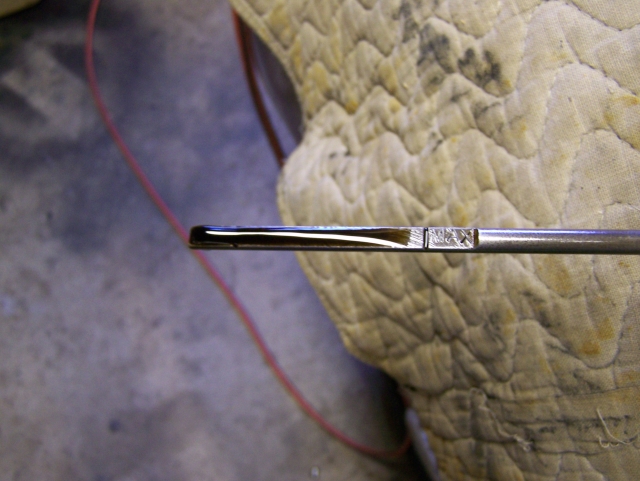 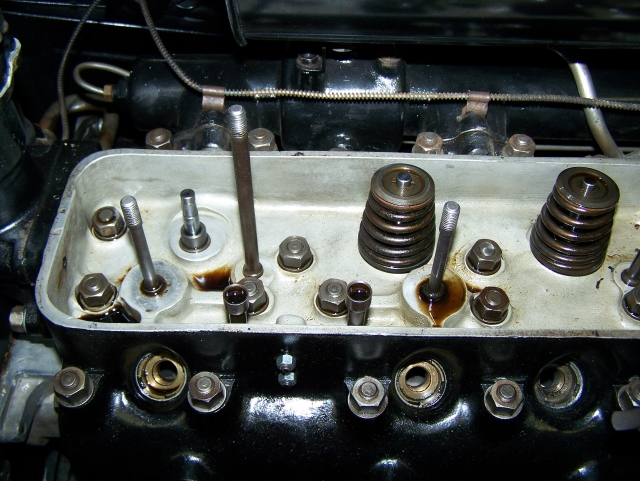 | ||
Brian Vogel Grand Master Username: guyslp Post Number: 3037 Registered: 06-2009 |
I've posted it before, and will do so again. The entities that have "written the Bibles of lubrication" are the API and ILSAC. I just posted this same information a few days ago, and updated the final link since Mobil had moved where they kept the chart. But the central points are made by the aforementioned "Bible writers." If you can't or won't take what API and ILSAC say as unquestionable then nothing is. Mr. Vatter is right that any currently available oil is so much better than what was available when these engines were new that all that have the correct "top number" (30, in this case) should be fine. There was no such thing as multiviscoscity oil when these engines were made. Thin "cold" becomes "thick" once warmed very quickly. And Mr. Vatter's point about film strength cannot be overstated, and that has gotten much, much better as lubrication refinements have improved over the last hundred plus years. Read what follows to guide your decision making. Even though it is, obviously, aimed at more modern engines, the general principles of lubrication apply to older ones. In your specific situation, I suggest you look at: https://www.api.org/products-and-services/engine-oil/eolcs-categories-and-classifications/oil-categories#tab-gasoline It marches through the history of API service levels going all the way back to SA. You'll see that each and every level is recommended to replace those that came before it. -------------------- [Links in this document were active as of 5/4/2020] Reading through the API & ILSAC motor oil standards/specifications for current (API SN/ILSAC GF-5) oils and the preceding specs should put anyone's mind to rest about the suitability of currently available motor oils for use in older car engines. On the API website, they explicitly state, "For automotive gasoline engines, the latest engine oil service category includes the performance properties of each earlier category. If an automotive owner's manual calls for an API SJ or SL oil, an API SM oil will provide full protection." [See: http://www.api.org/certification-programs/engine-oil-diesel-exhaust-fluid/service-categories] For oils for gasoline-powered engines, each and every specification meets or exceeds the performance of all of its predecessors. This means that there has been a continuous improvement in lubrication performance and that oils meeting current specifications are far more than "adequate" for older engines. API Materials: Motor Oil Matters Guide (2013), "Which Oil is Right for You?" - http://www.api.org/certification-programs/engine-oil-diesel-exhaust-fluid/~/media/Files/Certification/Engine-Oil-Diesel/Publications/MOM_GUIDE_ENGLISH_2013.pdf Full API 1509 Spec - 17th Ed - September 2012 (Addendum 10/2014 & Errata 3/2015,Includes ILSAC GF-5 Spec in Appendix Q) http://www.api.org/~/media/files/certification/engine-oil-diesel/publications/150917thaddendum1-032515.pdf?la=en ILSAC Final GF-5 Spec: http://www.gf-5.com/uploads/File/ILSAC_GF-5_Dec-22-09_final.pdf and, from the Mobil Oil Q&A Site: On needing to Mix Oils for ZDDP Levels: https://mobiloil.com/en/faq/ask-our-auto-experts/questions-for-auto-experts/mixing-motor-oil-to-reach-the-right-zddp-level-for-classic-cars I find it interesting that even on this "answers" page the statement is made that a particular one of their oils, "already contains a higher level of ZDDP (1000 ppm) that *could* benefit your flat tappet engine." [emphasis on that could is mine]. I have yet to find a single manufacturer who states either "will" or "does," but instead couches the statements in ways such that the preconceived notion is addressed. On Purported "Removal" of Zinc & Phosphorous from motor oil: https://mobiloil.com/en/faq/ask-our-auto-experts/questions-for-auto-experts/has-zinc-been-removed-from-motor-oils Mobil Oil Product Table, including Zinc & Phosphorus Levels: https://www-sl.mobil.com/lubricants/-/media/project/wep/mobil/mobil-row-us-1/files/mobil-1-product-guide-rev-31.pdf | ||
Jeff Martin New User Username: jeff_r_1 Post Number: 42 Registered: 07-2018 |
Thanks for posting all this and the links. I did do a search and none of this came up. When I started this thread I sort of knew I would be opening up a can of worms, as this subject has been discussed to death on other forums, but I've never been able to get a straight answer. More to come though.  | ||
Patrick Ryan Grand Master Username: patrick_r Post Number: 2256 Registered: 04-2016 |
Jeff, Inside your engine is amazing. All I was trying to say, and now the pics confirm it, why change? May I ask, what has driven you to make a change, considering you are getting fantastic results? Please keep us posted as to what you end up doing. I and I am sure others will be very interested. | ||
Mark Aldridge Frequent User Username: mark_aldridge Post Number: 677 Registered: 10-2008 |
Penrite are selling a High Zinc , group 3 base oil synthetic 15/60 oil in the UK. I am considering this for my MG midget 1500 which runs oil temp of 105c + continuously at speed, measured with a thermometer probe taped to the outside of the filter casing. This is presently on a 20/50 which is a bit thick starting cold in winter, goes black very quickly and drops oil pressure slightly after a fast run. (If we ever get to use it this year ) For my S1 I use 20/50 mineral SF rated with a small amount of STP My V8 Crewe cars use a mineral 15/50, either SG rated on the older engines or SL on the low milage Bentley 8 engine which was new in 2000. Mark | ||
Jeff Martin New User Username: jeff_r_1 Post Number: 43 Registered: 07-2018 |
Thanks Patrick, but there is more to keeping a clean engine then using a good oil, I was thinking how much better can I get it. It's never been allowed to sit and idle from cold, I drive it carefully right away from a cold start, the sooner the engine warms the better, and this is achieved by not letting it sit and idle in the driveway as so many people do. The mixture is set correct, I noticed that many with SU carbs, not just Bentley's and Rolls Royce's are set too rich. A TR4 drove by my house yesterday and was running rich, I could smell it. If anything my can is on the lean side, but it runs well. I believe Having a hotter thermostat is important, an engine that runs hotter runs cleaner and gets better fuel economy. A cool running engine burns the fuel poorly and gets full of soot. Looking at this now, note it says it's good for flat tappet engines. https://www.amsoil.ca/p/premium-protection-10w-40-synthetic-motor-oil-amo/?code=AMO1G-EA#pills-home_0 | ||
Brian Vogel Grand Master Username: guyslp Post Number: 3038 Registered: 06-2009 |
Jeff, The "flat tappet engines" stuff along with the ZDDP stuff is, how shall I put it delicately, not worth substantial consideration. Marketing in many companies (see my previous note on Mobil) is being very clever in addressing some of the favorite preconceived ill-conceived notions that continue to run rife on many car forums. It only makes sense that they do, as it gets them sales. I'm still waiting for unleaded fuel to be the death of old engines, many of which have now been running using it longer than they did with the leaded that was available when they were built. Technologies change, and the old ones were very seldom truly better. Brian | ||
Patrick Lockyer. Grand Master Username: pat_lockyer Post Number: 2301 Registered: 09-2004 |
Run LPG for clean oil and engine innards, longer oil changes if you want. Clean air! I have some old cars running on u/leaded, still no valve recession ,valve seats cut in cast iron heads. Some say memory effect no prob! | ||
Patrick Ryan Grand Master Username: patrick_r Post Number: 2257 Registered: 04-2016 |
Jeff, I have to admit mate, you are doing things with your beautiful car better than most, you really think about what is happening with it, and the things you are doing are really working well mate. Most people wouldnít even know these things, well done mate, as we can see it is paying off. Agree Jeff, A rich running car these days sticks out big time, it makes me want to pop their bonnet and check those mixtures  | ||
Christopher Carnley Unregistered guest Posted From: 86.137.245.194 |
It is only 5 years since Ashley James swore me blind repeatedly,that Mobil 1 had no ZDDP additives, until I sent him the data sheets. Ignore the handbook, it is out of date, if your engine is happy, cease and desist worrying about it. Change the oil as often as you please, every year or so. If you pour in a thinner viscosity oil and the engine rattles when hot, change back to the one before. Detergent agents such as sulphonates have negligible scuff protection. Anyone saying the detergent oils act like scouring pads is talking B.S. (Message approved by david_gore) | ||
Jeff Martin New User Username: jeff_r_1 Post Number: 44 Registered: 07-2018 |
Brian, that is also the confusing part about this, if all these new synthetic oils are designed to withstand the ultimate pressures of a modern engine, they must be good enough for any older engine, flat tappet or otherwise. So as you said, marketing hype. Also, manufacturers don't like using words like "will" or "does", as you said, because it opens up a can of liability. The more articles I read, the more I realize that what ever I put in there, will be better then what was available in 1951. And the other most important thing, change your oil when it's time. One may get more use out of synthetic, but in the end it will eventually get dirty and need changing. | ||
Christopher Carnley Unregistered guest Posted From: 109.159.63.137 |
Synthetic oils were designed for high temperature use in jet engines, they have really no part in motoring, unless you want to make money. (Message approved by david_gore) | ||
Jeff Martin New User Username: jeff_r_1 Post Number: 45 Registered: 07-2018 |
I ended up buying a 10w-30 Synthetic, the bottom number is just fine since I will never be starting the car in freezing temperatures. Here's lots of good info at the Jaguar forum from a Tribologist. Go to post 18 on the second link and read on. There's good info about ZDDP as well, if you read both posts. https://www.jaguarforums.com/forum/mki-mkii-s-type-240-340-daimler-61/engine-oil-thread-232263/ https://www.jaguarforums.com/forum/mki-mkii-s-type-240-340-daimler-61/hello-there-212846/#post2014912 One can't compare a mineral and synthetic at room temperature, the mineral one will always appear thicker, all things being equal, given the same 30 weight. The mineral based one will thin out at operating temperature and become just as thin or as thick as the synthetic one. A 30 weight is a 30 weight and so on. A 0w50 in synthetic will be the same as a 20w-50 in a mineral oil, the only difference is the bottom number for winter start ups. That means if you lived in the Arctic and parked your car outside at -40, the car would turn over with the 0w-50 while the mineral based 20w-50 would not. That's one advantage of synthetic, even in a heated garage, the 50 weight synthetic oil will always be that viscosity, while a mineral based oil will be on the thick side until the engine warms it up. The oil pump will have to work harder to move the oil around until it warms up with a mineral based oil. The stable viscosity of the synthetic will lubricate things much better and quicker on cold start up and help prevent cold start up wear. I believe this is very important since around 80% of engine wear occurs on cold start up. | ||
Brian Vogel Grand Master Username: guyslp Post Number: 3041 Registered: 06-2009 |
Jeff, All multi-viscosity oils will behave as though they were the thinner weight when cold and the thicker weight when at temperature. Note, that most "thinner" weight oils, cold, are more viscous (that is, thicker) than a "thicker weight" oil is at running temperature. Of course, this is also true of regular oil (which does not really exist anymore as a commercial product you can find anywhere). As oil heats it becomes less viscous. I have never seen any modern oil that is single viscosity, that is, marked as 50w or 30w or similar. But whether conventional or synthetic, 10w30, should behave like straight 10W when cold and transition as it heats to behaving like straight 30W would when hot. Multi-viscosity oil is, by design, NOT stable viscosity, regardless of the base. It is intended to have changing properties as its temperature changes. Brian | ||
Larry Kavanagh Frequent User Username: shadow_11 Post Number: 624 Registered: 05-2016 |
I buy SAE 30 which I use in my petrol lawnmower and I also use it in the gearbox of my Triumph Stag. The main reason I use it in the Triumph Stag gearbox is because there's an overdrive unit and I've been told that SAE 30 contains less detergent which helps to reduce engagement slippage in the overdrive. | ||
Christopher Carnley Unregistered guest Posted From: 109.159.182.212 |
That depends on how worn the pump body is. (Message approved by david_gore) | ||
Larry Kavanagh Frequent User Username: shadow_11 Post Number: 625 Registered: 05-2016 |
I use SAE 30 in the overdrive gearbox as I've read that it helps to eliminate clutch slip and related wear to the overdrive clutch whereas 20/50 or 80/90 contain detergents that can lead to clutch slip & wear. I'm no expert but I do think that SAE 30 gives a smoother, virtually undetectable overdrive selection, maybe I'm imagining it, I change the oil regularly even though the Triumph Stag does very little mileage. There's never any crud on the magnetic drain plug which is reassuring. | ||
Jeff Martin New User Username: jeff_r_1 Post Number: 46 Registered: 07-2018 |
Here's another thread related to this. http://au.rrforums.net/forum/messages/16999/1356.html?1093682014 | ||
Brian Vogel Grand Master Username: guyslp Post Number: 3042 Registered: 06-2009 |
One of Bill Vatter's comments in the topic linked to by Mr. Martin bears repeating: Do not be concerned about using detergent oil in a sludgy engine. Long experience has shown detergent additives do not break up existing sludge deposits. I just stated the same thing on the Toyota forum I currently participate on, given the new-to-me Solara in my life. See: https://www.toyotanation.com/threads/oil-change-question.1678056/post-14238819 Sludge is thixotrophic (and not just oil sludge). Detergent isn't going to touch it, only mechanical action that differs from what is present during its process of being deposited will. This is why, unless you need to do something that makes it convenient to remove sludge (if any) from an oil pan you just shouldn't bother. It's not going anywhere unless you dig it out. Sludge and varnish are not the same thing, and varnish is not sent suddenly liquid by detergents in oil, either. It's removed very, very slowly, if at all. | ||
Jeff Martin Experienced User Username: jeff_r_1 Post Number: 138 Registered: 07-2018 |
So far here is my result of running full synthetic 10/W30 Castrol. Note I am also using a WIX filter meant for synthetic oil, the element is synthetic itself, it is not made from paper. Oil pressure is about 3 pounds higher at idle on a fully warmed up engine. The oil on the dip stick has remained cleaner after a few hundred miles, when compared with conventional oil. Although I am sure the cleaner oil is probably contributed to the WIX filter and the fact that the engine is very clean on the inside, even after 20 years. See photos when I changed the sump gasket. Even the the bottom of the sump contained ZERO sludge and no varnish. One may benefit from a heavier weight oil, like 10W/50 if the crank bearings are a little worn, but I think using a heavier weight oil when not required just wears the oil pump out and it takes longer for the oil to reach critical places on cold start up. 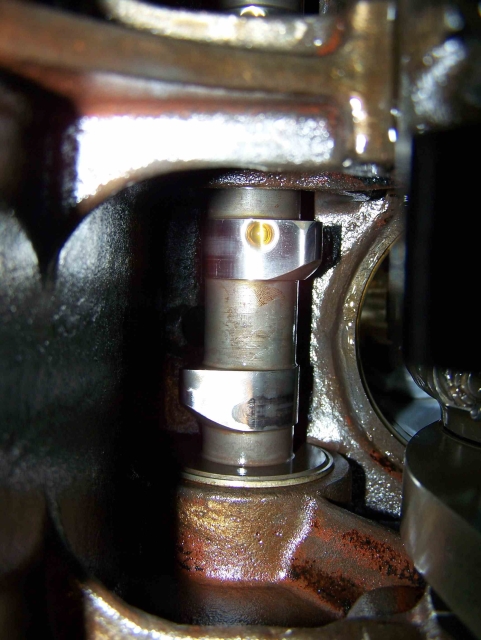 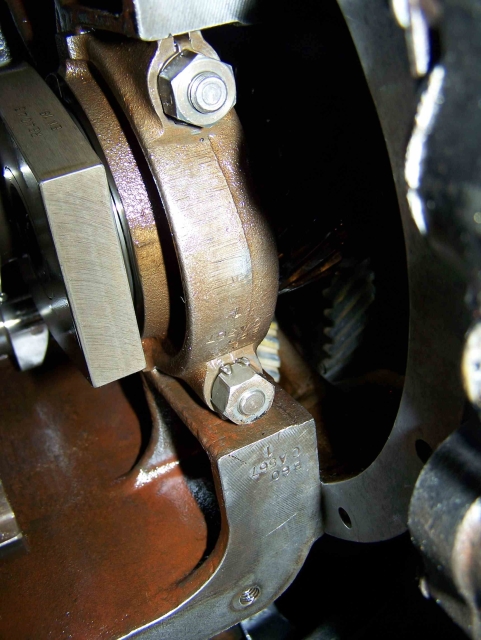  | ||
Alexander Lynch New User Username: lex_lynch Post Number: 15 Registered: 07-2020 |
Dear Jeff, A thought provoking report, I appreciate your quest into running these engines with cleaner oil. Can you tell me which model of Wix filter you have used as I am in the final stages of a rebuild and can install a spin on filter modification on B111 JN. | ||
Jeff Martin Frequent User Username: jeff_r_1 Post Number: 257 Registered: 07-2018 |
WIX filter 51515XP. Here's a small video of the O-Ring modification I made of the adapter I used. It's not the greatest video, but it gets the point across. Remember to fill the filter with oil before first start up. Also add some oil to the bores and turn the engine over by hand to get the oil into the pores of the cast iron, pistons, rings etc. Assembly lube or the oil you intend to use on the engine is a must as well on the main and rod journals. I'm sure you will remember to do all this, but others may need a gentle reminder the importance of lubing a fresh engine until the oil pump takes over and circulates the oil properly. When I first started mine, I did so with out the rocker shaft cover in place and watched as the low pressure oil made its way to the top. https://www.youtube.com/watch?v=6mZZb509m0M | ||
ChristopherCarnley Unregistered guest Posted From: 159.242.227.81 |
The normal cellulose Framm paper type provide much better oil flows than the synthetic ones. (Message approved by david_gore) | ||
Jeff Martin Frequent User Username: jeff_r_1 Post Number: 258 Registered: 07-2018 |
My oil pressure hasn't changed since using the synthetic oil filter. If it has, it must be so little I can't see the difference on the gauge. It has stayed cleaner longer since I have been using the synthetic oil filter, it's very obvious on the dip stick. That would make sense, given the fact that the filter element is tighter and keeps the oil cleaner longer that it would take more pressure to push the oil through it. Given the fact that synthetic oil is the same viscosity when cold as hot, I don't think that the synthetic element would be a problem with oil flow. I wouldn't use a synthetic oil filter with non-synthetic oil due to the differences in the size of the oil molecules. | ||
Jeff Martin Frequent User Username: jeff_r_1 Post Number: 263 Registered: 07-2018 |
I think this post is in the wrong thread, should be here. http://au.rrforums.net/forum/messages/16999/41837.html?1627256905 Thanks Jeff - have moved it to the correct thread. |